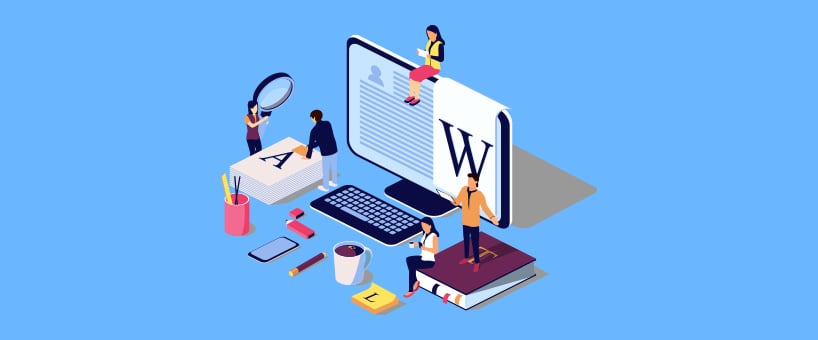Home » Academic Writing »
 September 26, 2024
September 26, 2024
Self-plagiarism is a growing concern in academics. Repurposing your work might seem less risky than other forms of duplication. However, it is considered equally unethical as copying from other resources. In academia, addressing the problem of self-plagiarism is becoming essential as more individuals are indulging in such behavior.
In this blog, we will discuss what self-plagiarism is and why it is considered wrong in academics. We will also provide some ways to prevent it and maintain academic integrity.
What is Self-Plagiarism?
Self-plagiarism refers to the practice of reusing your previously submitted work without proper acknowledgment. This could include copying entire sections from a past paper or resubmitting an assignment.
There are several misconceptions about self-plagiarism. Some believe that since the work is their own, they have the right to utilize it freely. However, each piece of work is expected to be original and contribute something new to the field.
Why is Self-Plagiarism Wrong?
Self-plagiarism is a serious offense in the academic world. It can have the same consequences as other forms of plagiarism. Here’s how self-plagiarism impacts academics.
• Effect on Academic Integrity
Self-plagiarism greatly impacts academic integrity as the same ideas are duplicated rather than expanded upon. The reusing and recycling of content slows down the progress. It can also lead to redundancy in academic literature. In extreme cases, it may even result in the circulation of outdated theories.
• Missed Learning Opportunity
Self-plagiarism, intentional or unintentional, is a form of academic dishonesty that undermines the value of education. When students recycle their old assignments, they miss out on the learning opportunities. This not only affects their intellectual growth but also destroys the overall quality of education. The practice of self-plagiarism can also create a misleading representation of a student’s abilities.
• Violation of Trust
Students, researchers, and scholars often need to present their ideas and findings transparently. When a student commits plagiarism, they violate the trust of their educators, peers, and the academic community. This act also overstates their academic achievements. Such misrepresentation is unfair to others who are submitting genuinely new work.
Consequences of Self-Plagiarism
Now the question arises, does self-plagiarism possess the same consequences as verbatim? The answer is yes. Duplicating your work may often have the same outcome as the other forms of plagiarism. Let’s discuss them in detail.
Academic institutions have strict policies regarding plagiarism. Students who commit self-plagiarism may face disciplinary actions. These implications range from receiving a warning to more severe penalties like failing the subject. Legal issues may also arise, especially when funding is involved.
In the context of academic publishing, the implications of self-plagiarism are even more serious. Journals and publishers often have strict guidelines against the submission of content published earlier. Violation of these guidelines can get them blacklisted from future publication opportunities.
How to Prevent Self-Plagiarism?
Preventing self-plagiarism requires a positive approach. It involves both individual awareness and institutional support. By following the steps given below, you can effectively prevent self-plagiarism.
• Cite Your Work
One of the simplest ways to avoid self-plagiarism is to always cite your own work. Citation is essential because it gives credit where it’s due, even when the work is your own. If you reuse a part of a paper you’ve already written, you need to let your readers know where that content originally appeared.
• Ask for Permission
Before you reuse any of your old work, it’s important to check the rules and guidelines of the journal, class, or institution involved. Different places have different policies, and what’s acceptable in one situation might not be in another. However, if you’re unsure, it’s always a good idea to ask for permission.
• Keep Track of Your Work
Staying organized is another key strategy for avoiding self-plagiarism. By keeping clear records of everything you’ve written. You can easily keep track of what you’ve already done. This helps you avoid accidentally reusing the same content without realizing it. You can also use your past research and writing as a starting point and bring new insights into your current work.
• Get Help from Your Institution
Many schools and institutions offer resources to help students avoid self-plagiarism. These might include workshops on citation practices, ethical writing, and how to use plagiarism detection tools effectively. Taking advantage of these resources can provide you with valuable knowledge and skills to maintain academic integrity.
• Use a Plagiarism Checker
An online plagiarism detector can be a useful tool for spotting plagiarism instances in your work. This tool compares your current work against a database of existing content to see if there’s any overlap. If you’re worried about self-plagiarism, run your paper through a plagiarism checker before submitting it. This will help you catch any unintentional repetition in your text swiftly.
• Paraphrase the Content
Another way to prevent plagiarism is to paraphrase the original text before submitting it. Instead of copying the whole thing, you can revamp your previous work and create text that is different from the original one. This way, you can use your older work without committing self-plagiarism.
Conclusion:
Self-plagiarism is as serious as duplicating from other resources. It has serious implications for both students and the academic community. This act shows the lack of interest of the individuals in creating new content. It also misrepresents the amount of research work being done. In some cases, self-plagiarism may also lead to copyright infringements and legal consequences. Therefore, it is important to understand the negative impact of self-plagiarism to prevent it.
- August 2025 (1)
- July 2025 (1)
- June 2025 (1)
- April 2025 (1)
- March 2025 (1)
- February 2025 (2)
- January 2025 (1)
- December 2024 (4)
- November 2024 (8)
- October 2024 (1)
- September 2024 (3)
- August 2024 (2)